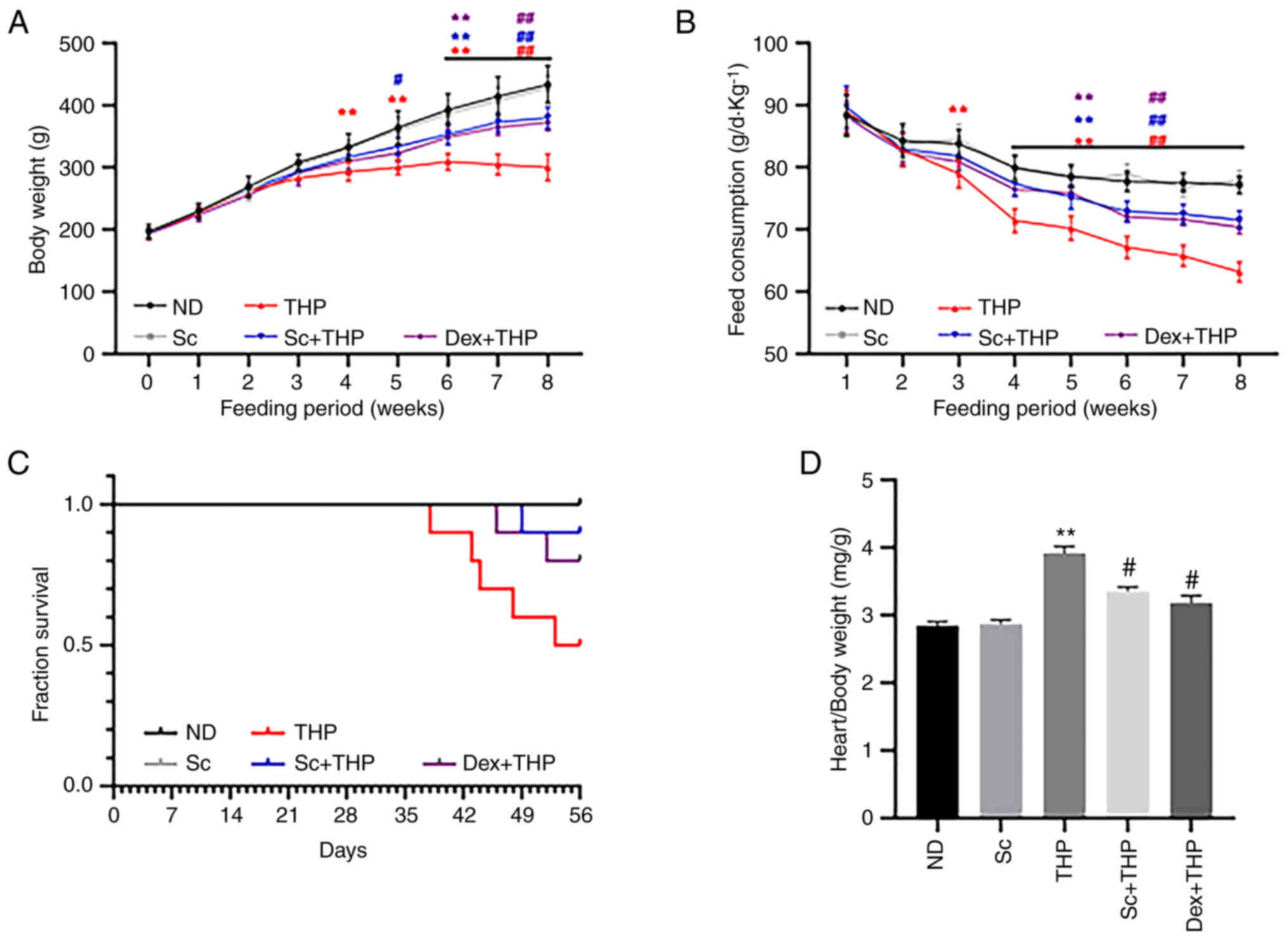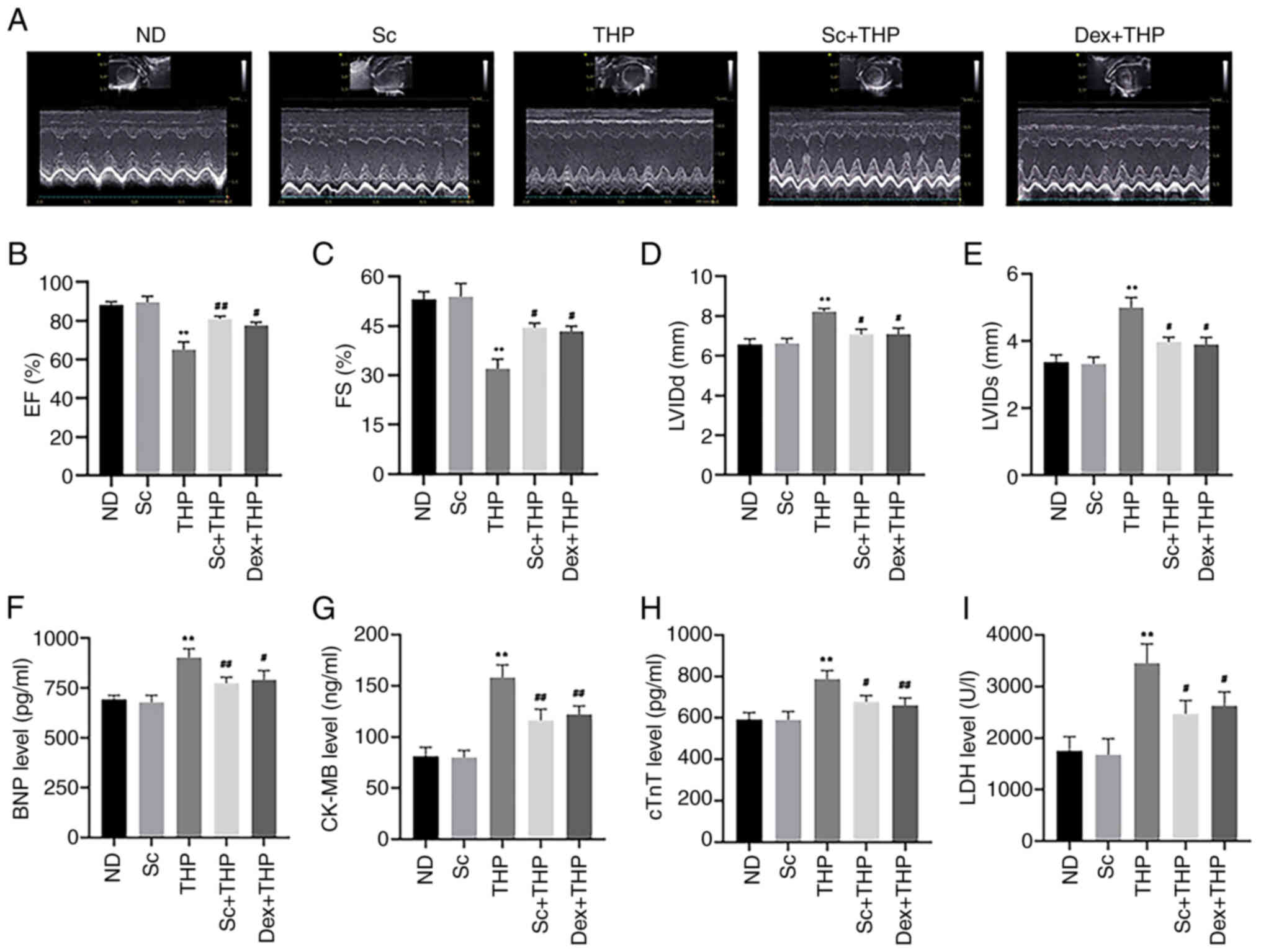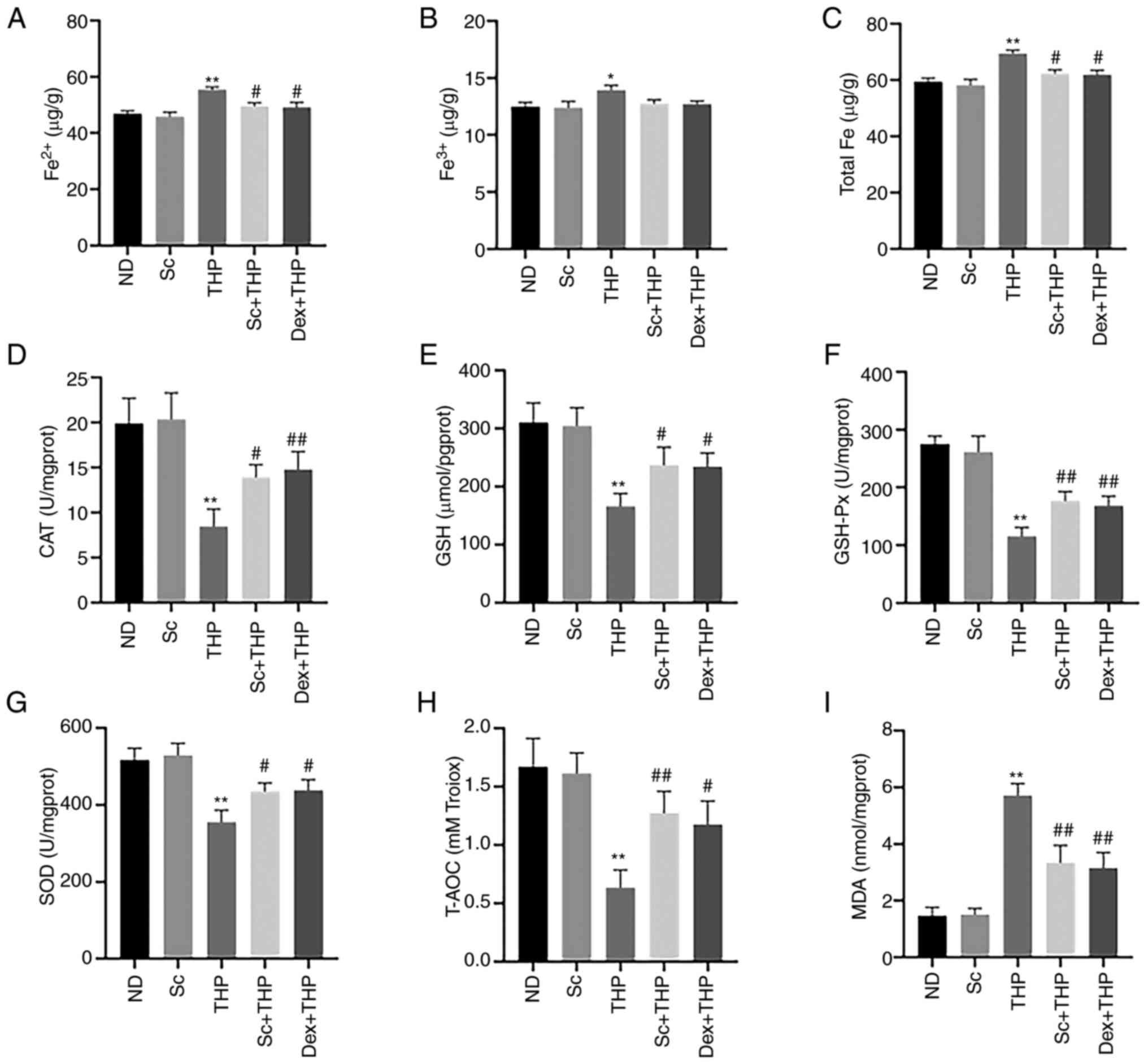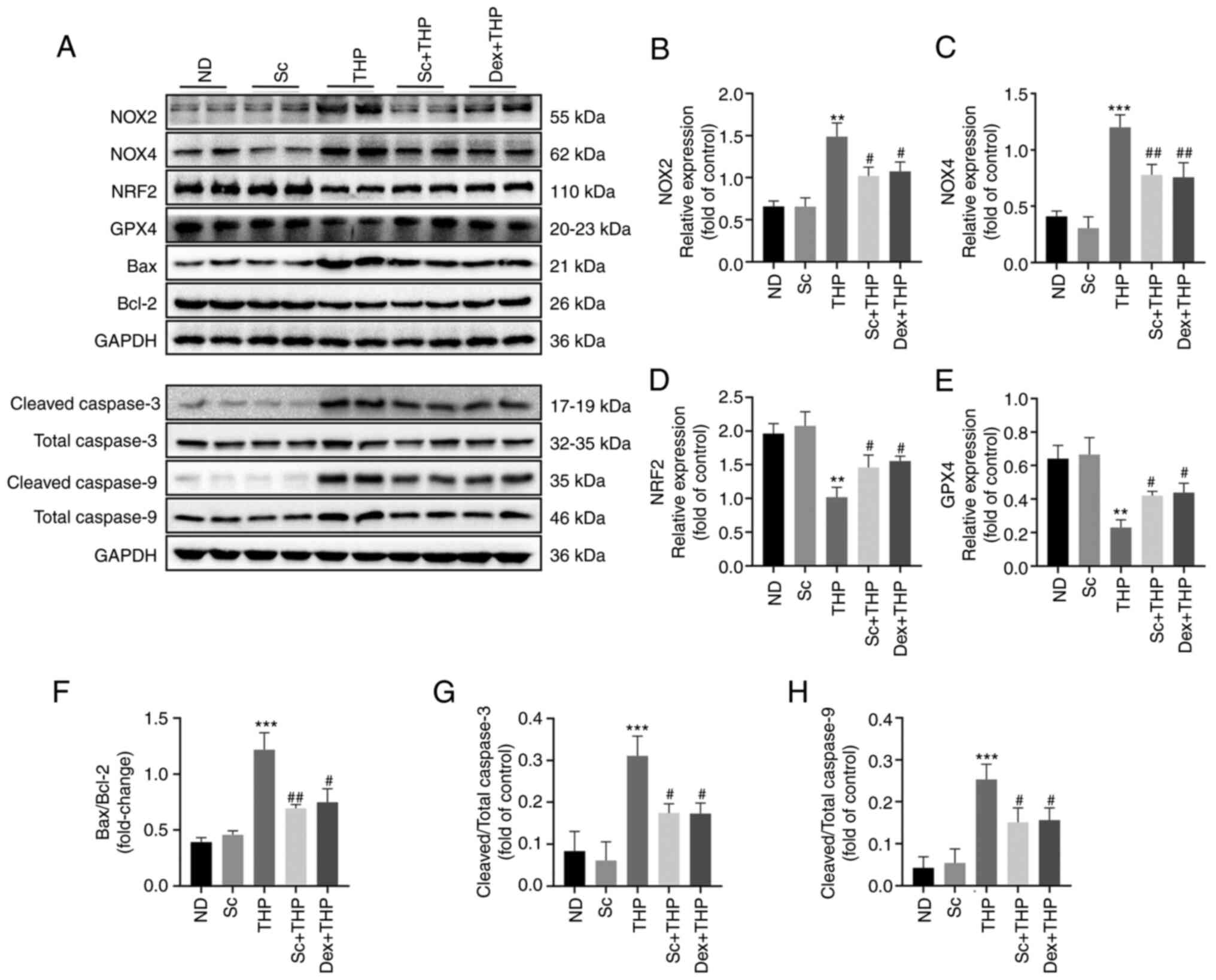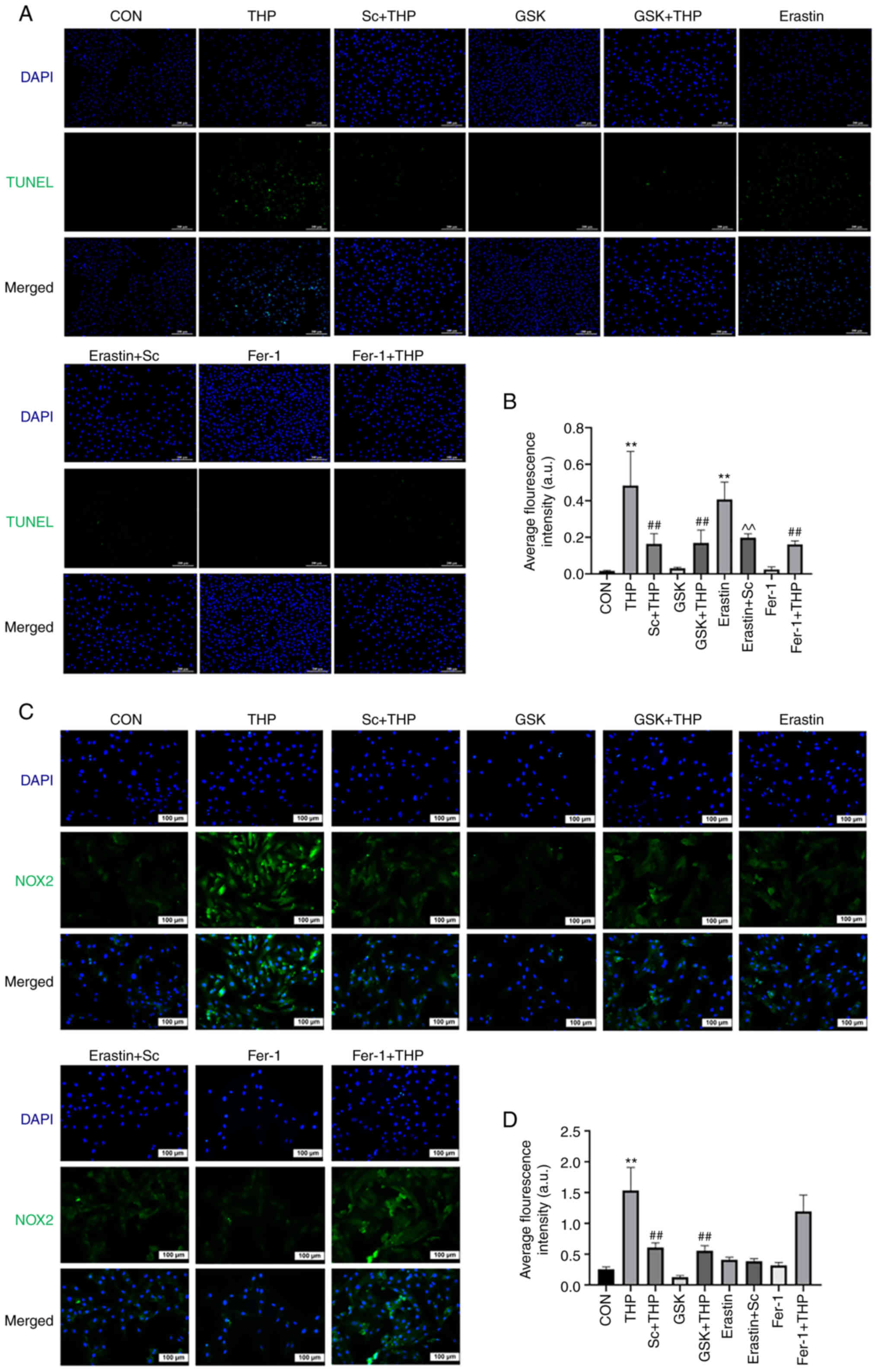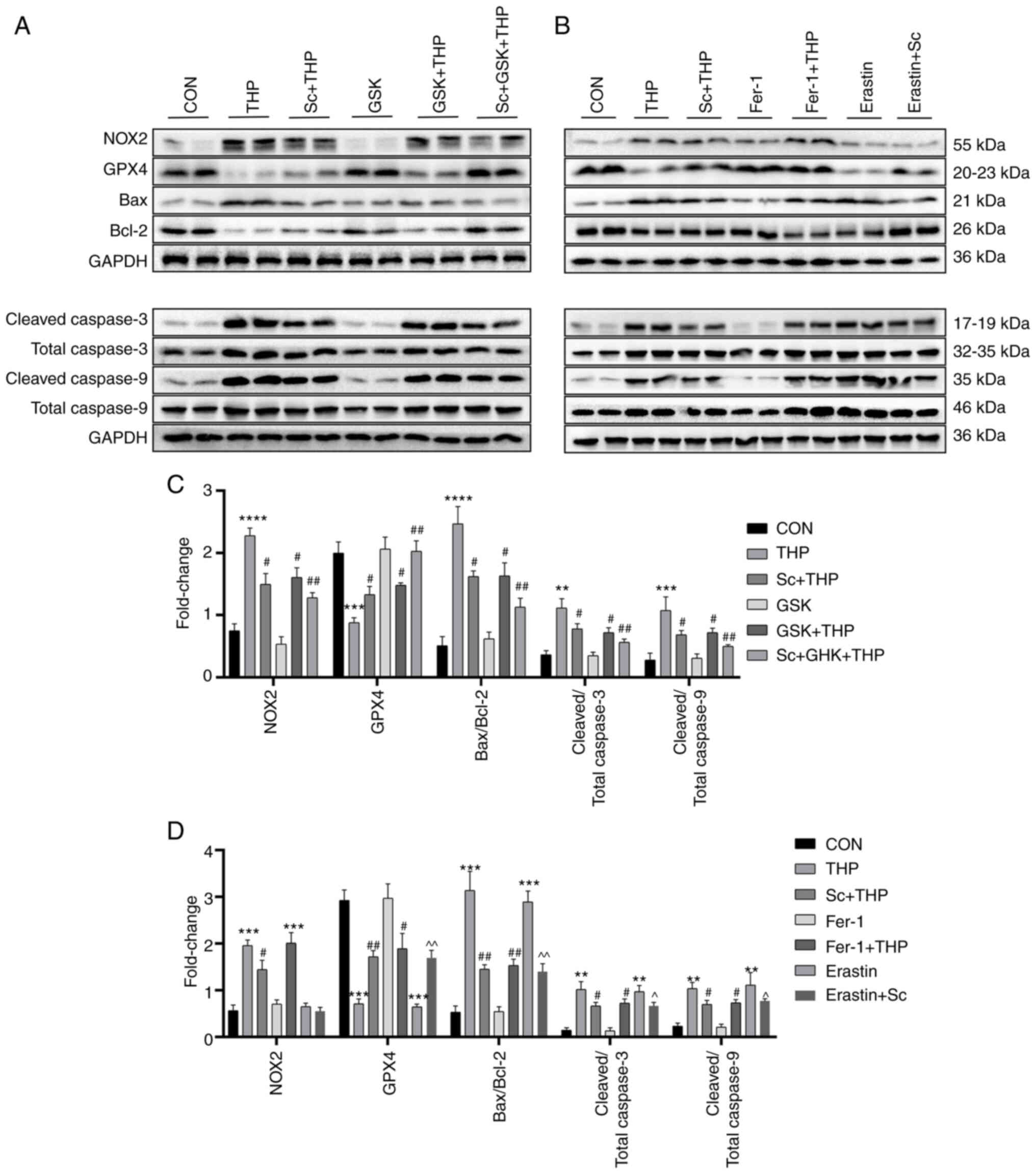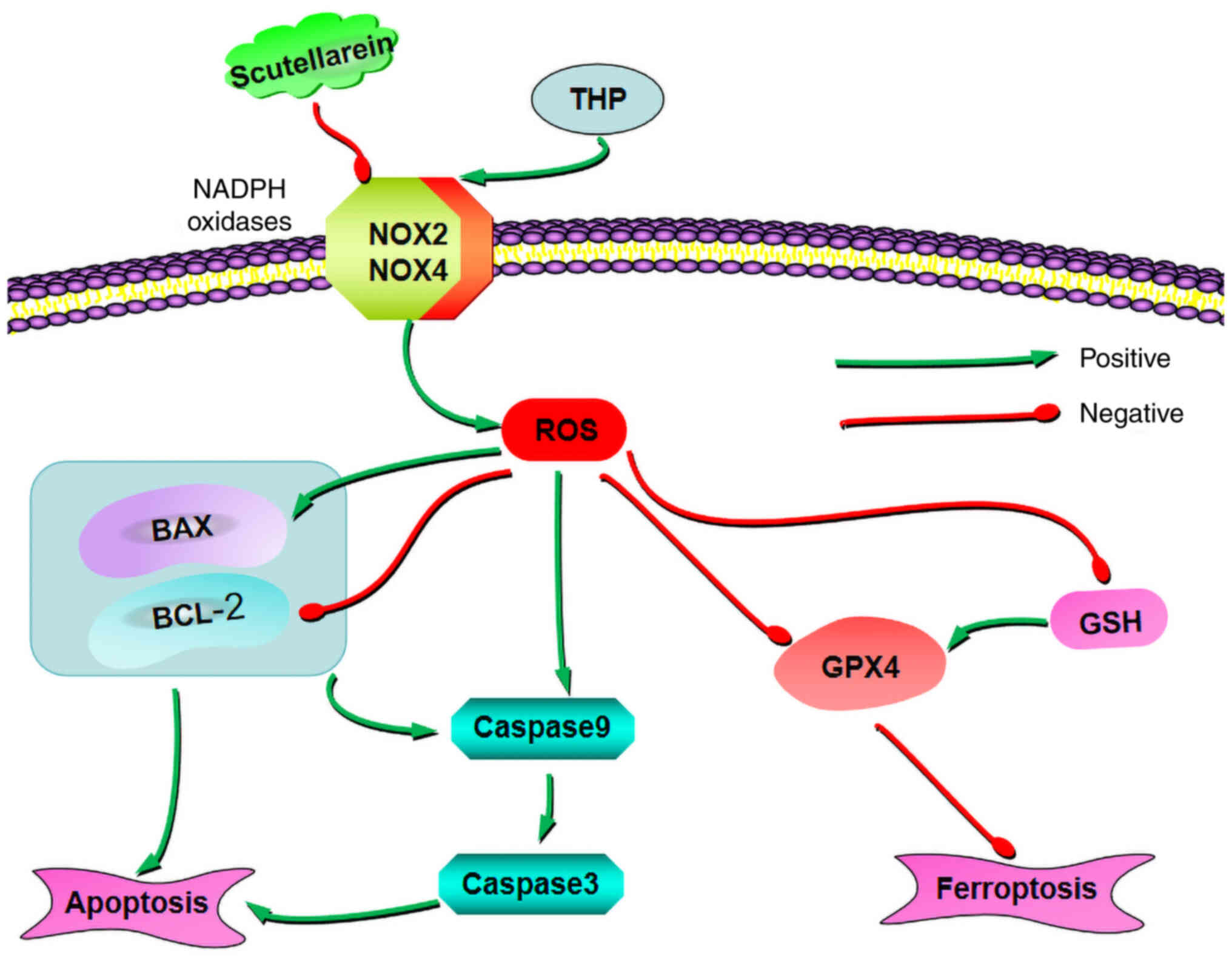|
1
|
Mullard A: Addressing cancer's grand
challenges. Nat Rev Drug Discov. 19:825–826. 2020. View Article : Google Scholar : PubMed/NCBI
|
|
2
|
Hait WN: Anticancer drug development: The
grand challenges. Nat Rev Drug Discov. 9:253–254. 2010. View Article : Google Scholar : PubMed/NCBI
|
|
3
|
von Minckwitz G and Loibl S: Evolution of
adjuvant chemotherapy for breast cancer. Lancet. 385:1812–1814.
2015. View Article : Google Scholar : PubMed/NCBI
|
|
4
|
Shen SJ and Liu CM: Chemotherapy for
early-stage breast cancer: The more the better? Lancet.
401:1243–1245. 2023. View Article : Google Scholar : PubMed/NCBI
|
|
5
|
Gabizon AA, Patil Y and La-Beck NM: New
insights and evolving role of pegylated liposomal doxorubicin in
cancer therapy. Drug Resist Updat. 29:90–106. 2016. View Article : Google Scholar : PubMed/NCBI
|
|
6
|
Pugazhendhi A, Edison TNJI, Velmurugan BK,
Jacob JA and Karuppusamy I: Toxicity of Doxorubicin (Dox) to
different experimental organ systems. Life Sci. 200:26–30. 2018.
View Article : Google Scholar : PubMed/NCBI
|
|
7
|
Yu J, Wang C, Kong Q, Wu X, Lu JJ and Chen
X: Recent progress in doxorubicin-induced cardiotoxicity and
protective potential of natural products. Phytomedicine.
40:125–139. 2018. View Article : Google Scholar : PubMed/NCBI
|
|
8
|
Kong CY, Guo Z, Song P, Zhang X, Yuan YP,
Teng T, Yan L and Tang QZ: Underlying the mechanisms of
doxorubicin-induced acute cardiotoxicity: Oxidative stress and cell
death. Int J Biol Sci. 18:760–770. 2022. View Article : Google Scholar : PubMed/NCBI
|
|
9
|
Tocchetti CG, Carpi A, Coppola C,
Quintavalle C, Rea D, Campesan M, Arcari A, Piscopo G, Cipresso C,
Monti MG, et al: Ranolazine protects from doxorubicin-induced
oxidative stress and cardiac dysfunction. Eur J Heart Fail.
16:358–366. 2014. View
Article : Google Scholar : PubMed/NCBI
|
|
10
|
Zhao L, Tao X, Qi Y, Xu L, Yin L and Peng
J: Protective effect of dioscin against doxorubicin-induced
cardiotoxicity via adjusting microRNA-140-5p-mediated myocardial
oxidative stress. Redox Biol. 16:189–198. 2018. View Article : Google Scholar : PubMed/NCBI
|
|
11
|
McLaughlin D, Zhao Y, O'Neill KM, Edgar
KS, Dunne PD, Kearney AM, Grieve DJ and McDermott BJ: Signalling
mechanisms underlying doxorubicin and Nox2 NADPH oxidase-induced
cardiomyopathy: Involvement of mitofusin-2. Br J Pharmacol.
174:3677–3695. 2017. View Article : Google Scholar : PubMed/NCBI
|
|
12
|
Li Q, Qin M, Tan Q, Li T, Gu Z, Huang P
and Ren L: MicroRNA-129-1-3p protects cardiomyocytes from
pirarubicin-induced apoptosis by down-regulating the
GRIN2D-mediated Ca2+ signalling pathway. J Cell Mol Med.
24:2260–2271. 2020. View Article : Google Scholar : PubMed/NCBI
|
|
13
|
Han D, Wang Y, Wang Y, Dai X, Zhou T, Chen
J, Tao B, Zhang J and Cao F: The tumor-suppressive human circular
RNA CircITCH sponges miR-330-5p to ameliorate doxorubicin-induced
cardiotoxicity through upregulating SIRT6, survivin, and SERCA2a.
Circ Res. 127:e108–e125. 2020. View Article : Google Scholar : PubMed/NCBI
|
|
14
|
Chen YH, Chen ZW, Li HM, Yan XF and Feng
B: AGE/RAGE-Induced EMP release via the NOX-Derived ROS pathway. J
Diabetes Res. 2018:68230582018. View Article : Google Scholar : PubMed/NCBI
|
|
15
|
Zhang J, Wang X, Vikash V, Ye Q, Wu D, Liu
Y and Dong W: ROS and ROS-Mediated cellular signaling. Oxid Med
Cell Longev. 2016:43509652016. View Article : Google Scholar : PubMed/NCBI
|
|
16
|
Drummond GR and Sobey CG: Endothelial
NADPH oxidases: Which NOX to target in vascular disease? Trends
Endocrinol Metab. 25:452–463. 2014. View Article : Google Scholar : PubMed/NCBI
|
|
17
|
Prosser BL, Ward CW and Lederer WJ: X-ROS
signaling: Rapid mechano-chemo transduction in heart. Science.
333:1440–1445. 2011. View Article : Google Scholar : PubMed/NCBI
|
|
18
|
Orrenius S, Gogvadze V and Zhivotovsky B:
Mitochondrial oxidative stress: Implications for cell death. Annu
Rev Pharmacol Toxicol. 47:143–183. 2007. View Article : Google Scholar : PubMed/NCBI
|
|
19
|
Stockwell BR: Ferroptosis turns 10:
Emerging mechanisms, physiological functions, and therapeutic
applications. Cell. 185:2401–2421. 2022. View Article : Google Scholar : PubMed/NCBI
|
|
20
|
Spiegel M, Marino T, Prejanò M and Russo
N: On the scavenging ability of scutellarein against the OOH
radical in water and Lipid-like environments: A Theoretical study.
Antioxidants (Basel). 11:2242022. View Article : Google Scholar : PubMed/NCBI
|
|
21
|
Lin Y, Lin Y, Ren N, Li S, Chen M and Pu
P: Novel anti-obesity effect of scutellarein and potential
underlying mechanism of actions. Biomed Pharmacother.
117:1090422019. View Article : Google Scholar : PubMed/NCBI
|
|
22
|
Chagas MDSS, Behrens MD, Moragas-Tellis
CJ, Penedo GXM, Silva AR and Gonçalves-de-Albuquerque CF: Flavonols
and flavones as potential anti-inflammatory, antioxidant, and
antibacterial compounds. Oxid Med Cell Longev. 2022:99667502022.
View Article : Google Scholar : PubMed/NCBI
|
|
23
|
Gao L, Tang H, Zeng Q, Tang T, Chen M and
Pu P: The anti-insulin resistance effect of scutellarin may be
related to antioxidant stress and AMPKα activation in diabetic
mice. Obes Res Clin Pract. 14:368–374. 2020. View Article : Google Scholar : PubMed/NCBI
|
|
24
|
Mei X, Zhang T, Ouyang H, Lu B, Wang Z and
Ji L: Scutellarin alleviates blood-retina-barrier oxidative stress
injury initiated by activated microglia cells during the
development of diabetic retinopathy. Biochem Pharmacol. 159:82–95.
2019. View Article : Google Scholar : PubMed/NCBI
|
|
25
|
Shi H, Tang H, Ai W, Zeng Q, Yang H, Zhu
F, Wei Y, Feng R, Wen L, Pu P and He Q: Schisandrin B antagonizes
cardiotoxicity induced by pirarubicin by inhibiting mitochondrial
permeability transition pore (mPTP) opening and decreasing
cardiomyocyte apoptosis. Front Pharmacol. 12:7338052021. View Article : Google Scholar : PubMed/NCBI
|
|
26
|
Chai Y, Cao Z, Yu R, Liu Y, Yuan D and Lei
L: Dexmedetomidine attenuates LPS-Induced Monocyte-Endothelial
adherence via inhibiting Cx43/PKC-α/NOX2/ROS signaling pathway in
monocytes. Oxid Med Cell Longev. 2020:29304632020. View Article : Google Scholar : PubMed/NCBI
|
|
27
|
Zhang H, Wang Z, Liu Z, Du K and Lu X:
Protective effects of dexazoxane on rat ferroptosis in
Doxorubicin-Induced cardiomyopathy through regulating HMGB1. Front
Cardiovasc Med. 8:6854342021. View Article : Google Scholar : PubMed/NCBI
|
|
28
|
Li S, Lei Z, Yang X, Zhao M, Hou Y, Wang
D, Tang S, Li J and Yu J: Propofol protects myocardium from
ischemia/reperfusion injury by inhibiting ferroptosis through the
AKT/p53 signaling pathway. Front Pharmacol. 13:8414102022.
View Article : Google Scholar : PubMed/NCBI
|
|
29
|
Lim GB: Circular RNA prevents
doxorubicin-induced cardiotoxicity. Nat Rev Cardiol. 19:5742022.
View Article : Google Scholar : PubMed/NCBI
|
|
30
|
Gianni L, Herman EH, Lipshultz SE, Minotti
G, Sarvazyan N and Sawyer DB: Anthracycline cardiotoxicity: From
bench to bedside. J Clin Oncol. 26:3777–3784. 2008. View Article : Google Scholar : PubMed/NCBI
|
|
31
|
Han XZ, Gao S, Cheng YN, Sun YZ, Liu W,
Tang LL and Ren DM: Protective effect of naringenin-7-O-glucoside
against oxidative stress induced by doxorubicin in H9c2
cardiomyocytes. Biosci Trends. 6:19–25. 2012.PubMed/NCBI
|
|
32
|
Alanazi AM, Fadda L, Alhusaini A, Ahmad R,
Hasan IH and Mahmoud AM: Liposomal resveratrol and/or carvedilol
attenuate doxorubicin-induced cardiotoxicity by modulating
inflammation, oxidative stress and S100A1 in rats. Antioxidants
(Basel). 9:1592020. View Article : Google Scholar : PubMed/NCBI
|
|
33
|
Rosca MG and Hoppel CL: Mitochondria in
heart failure. Cardiovasc Res. 88:40–50. 2010. View Article : Google Scholar : PubMed/NCBI
|
|
34
|
Hausenloy DJ and Ruiz-Meana M: Not just
the powerhouse of the cell: Emerging roles for mitochondria in the
heart. Cardiovasc Res. 88:5–6. 2010. View Article : Google Scholar : PubMed/NCBI
|
|
35
|
ChenY R and Zweier JL: Cardiac
mitochondria and reactive oxygen species generation. Circ Res.
114:524–537. 2014. View Article : Google Scholar : PubMed/NCBI
|
|
36
|
Bedard K and Krause KH: The NOX family of
ROS-generating NADPH oxidases: physiology and pathophysiology.
Physiol Rev. 87:245–313. 2007. View Article : Google Scholar : PubMed/NCBI
|
|
37
|
Li D, Yang Y, Wang S, He X, Liu M, Bai B,
Tian C, Sun R, Yu T and Chu X: Role of acetylation in
doxorubicin-induced cardiotoxicity. Redox Biol. 46:1020892021.
View Article : Google Scholar : PubMed/NCBI
|
|
38
|
D'Autreaux B and Toledano MB: ROS as
signalling molecules: Mechanisms that generate specificity in ROS
homeostasis. Nat Rev Mol Cell Biol. 8:813–824. 2007. View Article : Google Scholar : PubMed/NCBI
|
|
39
|
Stockwell BR: A powerful cell-protection
system prevents cell death by ferroptosis. Nature. 575:597–598.
2019. View Article : Google Scholar : PubMed/NCBI
|
|
40
|
Tang D, Chen X, Kang R and Kroemer G:
Ferroptosis: Molecular mechanisms and health implications. Cell
Res. 31:107–125. 2021. View Article : Google Scholar : PubMed/NCBI
|
|
41
|
Park MW, Cha HW, Kim J, Kim JH, Yang H,
Yoon S, Boonpraman N, Yi SS, Yoo ID and Moon JS: NOX4 promotes
ferroptosis of astrocytes by oxidative stress-induced lipid
peroxidation via the impairment of mitochondrial metabolism in
Alzheimer's diseases. Redox Biol. 41:1019472021. View Article : Google Scholar : PubMed/NCBI
|
|
42
|
Bersuker K, Hendricks JM, Li Z, Magtanong
L, Ford B, Tang PH, Roberts MA, Tong B, Maimone TJ, Zoncu R, et al:
The CoQ oxidoreductase FSP1 acts parallel to GPX4 to inhibit
ferroptosis. Nature. 575:688–692. 2019. View Article : Google Scholar : PubMed/NCBI
|
|
43
|
Jiang X, Stockwell BR and Conrad M:
Ferroptosis: Mechanisms, biology and role in disease. Nat Rev Mol
Cell Biol. 22:266–282. 2021. View Article : Google Scholar : PubMed/NCBI
|
|
44
|
Conrad M and Pratt DA: The chemical basis
of ferroptosis. Nat Chem Biol. 15:1137–1147. 2019. View Article : Google Scholar : PubMed/NCBI
|
|
45
|
Liu Z, Zhou Z, Ai P, Zhang C, Chen J and
Wang Y: Astragaloside IV attenuates ferroptosis after subarachnoid
hemorrhage via Nrf2/HO-1 signaling pathway. Front Pharmacol.
13:9248262022. View Article : Google Scholar : PubMed/NCBI
|
|
46
|
Dixon SJ, Lemberg KM, Lamprecht MR, Skouta
R, Zaitsev EM, Gleason CE, Patel DN, Bauer AJ, Cantley AM, Yang WS,
et al: Ferroptosis: An iron-dependent form of nonapoptotic cell
death. Cell. 149:1060–1072. 2012. View Article : Google Scholar : PubMed/NCBI
|
|
47
|
Yan R, Xie E, Li Y, Li J, Zhang Y, Chi X,
Hu X, Xu L, Hou T, Stockwell BR, et al: The structure of
erastin-bound xCT-4F2hc complex reveals molecular mechanisms
underlying erastin-induced ferroptosis. Cell Res. 32:687–690. 2022.
View Article : Google Scholar : PubMed/NCBI
|
|
48
|
Gan B: How erastin assassinates cells by
ferroptosis revealed. Protein Cell. 14:84–86. 2023.PubMed/NCBI
|
|
49
|
Yang Y, Luo M, Zhang K, Zhang J, Gao T,
Connell DO, Yao F, Mu C, Cai B, Shang Y and Chen W: Nedd4
ubiquitylates VDAC2/3 to suppress erastin-induced ferroptosis in
melanoma. Nat Commun. 11:4332020. View Article : Google Scholar : PubMed/NCBI
|
|
50
|
Zilka O, Shah R, Li B, Friedmann Angeli
JP, Griesser M, Conrad M and Pratt DA: On the mechanism of
cytoprotection by Ferrostatin-1 and Liproxstatin-1 and the role of
lipid peroxidation in ferroptotic cell death. ACS Cent Sci.
3:232–243. 2017. View Article : Google Scholar : PubMed/NCBI
|
|
51
|
Miotto G, Rossetto M, Di Paolo ML, Orian
L, Venerando R, Roveri A, Vučković AM, Bosello Travain V, Zaccarin
M, Zennaro L, et al: Insight into the mechanism of ferroptosis
inhibition by ferrostatin-1. Redox Biol. 28:1013282020. View Article : Google Scholar : PubMed/NCBI
|
|
52
|
Park JS, Kim DH, Choi HI, Kim CS, Bae EH,
Ma SK and Kim SW: 3-Carboxy-4-methyl-5-propyl-2-furanpropanoic acid
(CMPF) induces cell death through ferroptosis and acts as a trigger
of apoptosis in kidney cells. Cell Death Dis. 14:782023. View Article : Google Scholar : PubMed/NCBI
|















